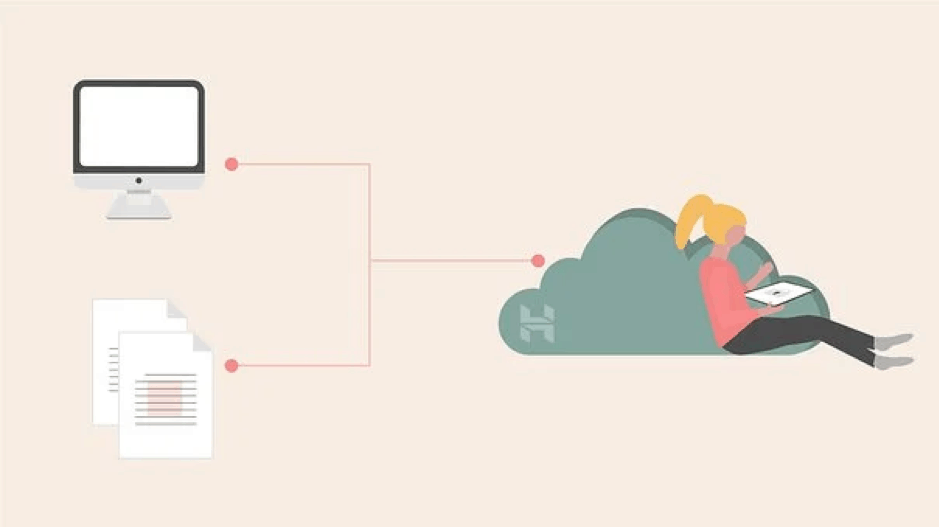All websites in the world are stored on servers. The ‘web hosts’ or ‘hosting service providers’ are the companies that own/maintain the servers that host all websites. The servers bring the websites and their content to the users on the Internet, providing the essential service of storing or ‘hosting’ them. Hence, choosing the right type of web hosting services is vital for any site administrator. The type of server plans you choose will impact your website’s availability, day-to-day performances, and security.
Unfortunately, most first-time website owners aren’t aware of the importance of hosting. Opting for the cheapest plan available and focusing on web designing or content creation is the strategy most first-time website owners follow. The most obvious hosting option is shared hosting. In 2019, the shared hosting segment of the $56.7 billion web hosting industry recorded a revenue share of 37.64%. So, the best strategy is doing what other website owners are doing and opting for shared hosting, right? Not quite.
Basic shared hosting plans can serve websites well during their early stages. After all, shared hosting is extremely convenient, cost-effective, and beginner-friendly. However, in these plans, websites essentially rent spaces on servers, often competing with hundreds of other websites hosted on the same servers. For websites that are small and don’t experience much traffic, such resource-sharing on servers isn’t harmful. However, when websites start requiring a lot of resources, the need to upgrade to better hosting plans becomes more than obvious.
Upgrading Your Hosting Plan – When and Why?
Website owners who are currently on shared hosting plans should consider upgrading their plans when –
- Their website’s speed and performance levels are dropping. These two factors play a critical role in boosting the search result rankings of websites. More importantly, they directly impact user experiences. So, when shared hosting plans with limited resources prevent websites from making the most of the traffic they receive, it’s time to upgrade.
- A study by Shopping Cart Elite suggests that downtime of six hours can cause websites to drop in rankings by 30%. The damage to rankings lasts for two months on average. So, if your shared hosting plan can’t keep your website available and handle increasing amounts of traffic at all times, it’s time to upgrade.
- Security risks. Developing websites, especially the ones that allow users to create accounts and store private information, need to have advanced security features that are only offered by non-shared hosting plans.
Overall, whenever website owners add more pages, media, etc., to their websites to attract more traffic and generate more on-site activity, their websites require more server resources. Or else, providing smooth user experiences would be impossible.
The Best Hosting Upgrade Options
Let’s assess the most common types of web hosting options that are better than shared hosting –
- Cloud Hosting
- Dedicated Hosting
- VPS Hosting
- Managed WordPress Hosting
Which is the right web hosting option for your website? Here’s a quick rundown on the different types of hosting options and what types of websites they support the best –
- Shared hosting is ideal for small-scale websites that are new to the market. It’s cost-effective and easy to maintain.
- VPS (Virtual Private Servers) are good for up-and-coming websites that are constantly growing.
- Managed WordPress hosting is the most convenient option for website owners who don’t like complicated site maintenance procedures.
- Dedicated servers are ideal for professional-looking websites that experience high volumes of traffic and store customer data.
Lets’ focus on dedicated server hosting as all website owners aim to make their sites look professional, experience higher volumes of traffic, and offer customized consumer interactions by leveraging the customer data they gather.
What is Dedicated Server Hosting?
Remember how website owners with shared hosting plans have to rent spaces on servers? Well, with dedicated hosting plans, websites get exclusive access to physical servers of their own. All the server’s resources are “dedicated” to one website. That’s what makes this hosting plan different from shared or VPS hosting, where websites have to share server resources. With dedicated hosting plans, website owners can –
- Boost the loading speed and performance quality of their websites.
- Obtain total control over website configurations and customize every aspect of the site.
- Websites on dedicated servers receive unique IP addresses, so the chances of virus attacks or the website getting blacklisted are minimal.
- With the best dedicated server plans, website owners can receive up to 2TB of storage space. Hence, they can addas many high-quality media files as they like without making the website slower.
Upgrading to Dedicated Hosting
Websites aiming to go big, such as e-commerce websites, must opt for dedicated hosting. The worldwide dedicated hosting market was worth $6.53 billion in 2020, so it’s clear that more website owners are opting for this option. All the benefits of dedicated hosting plans come at a price. Dedicated hosting is much costlier than VPS or shared hosting options. But, the boost in website performances, increased control, and versatility certainly makes the upfront fees worth it for website owners aiming to make it large!

